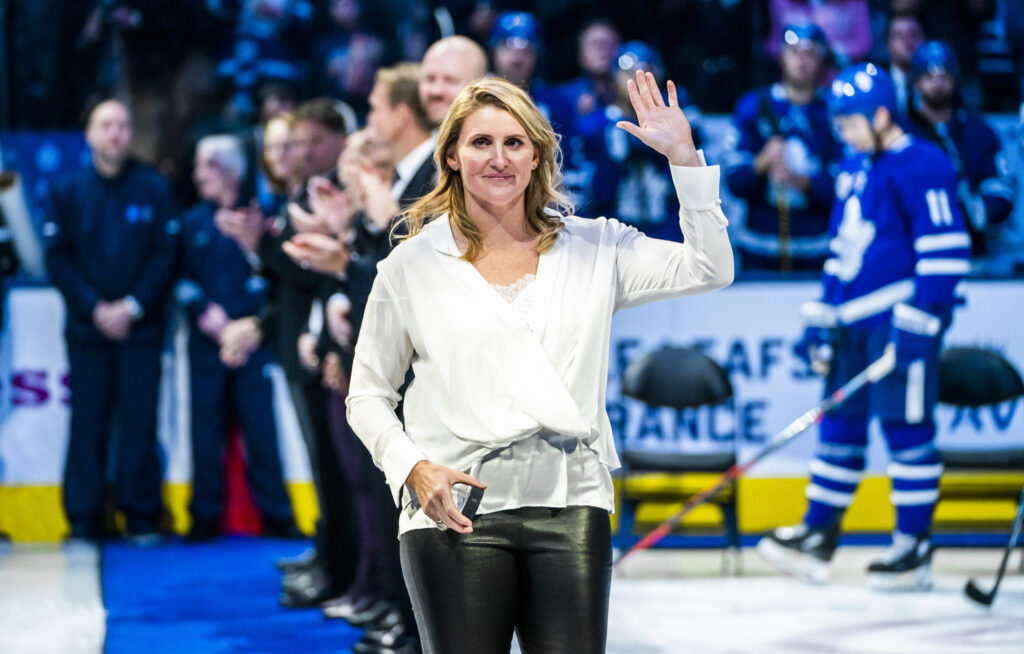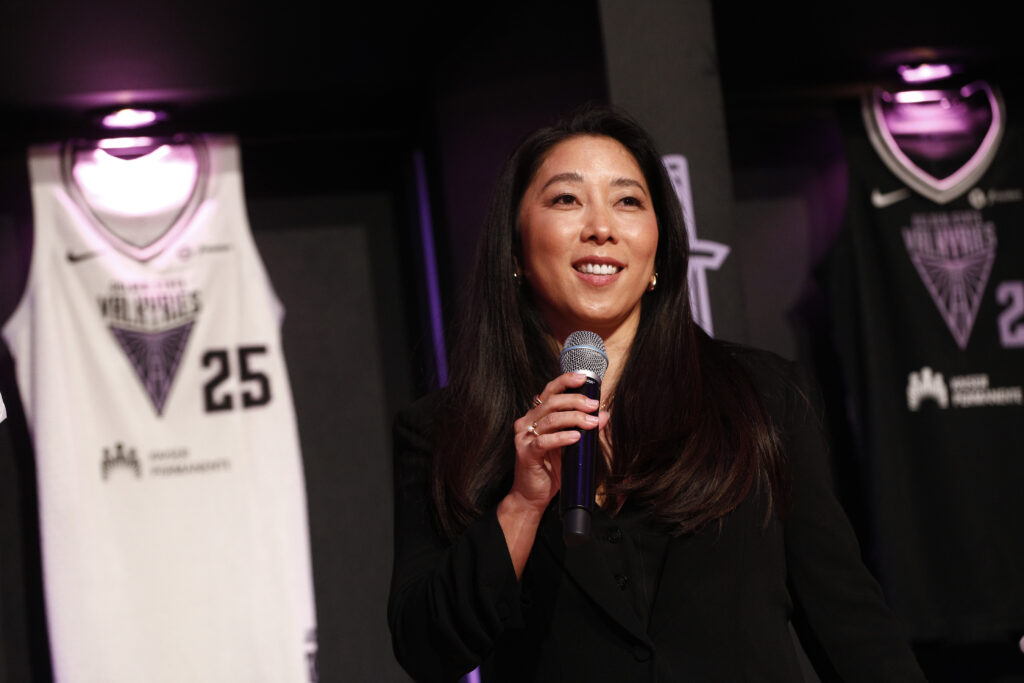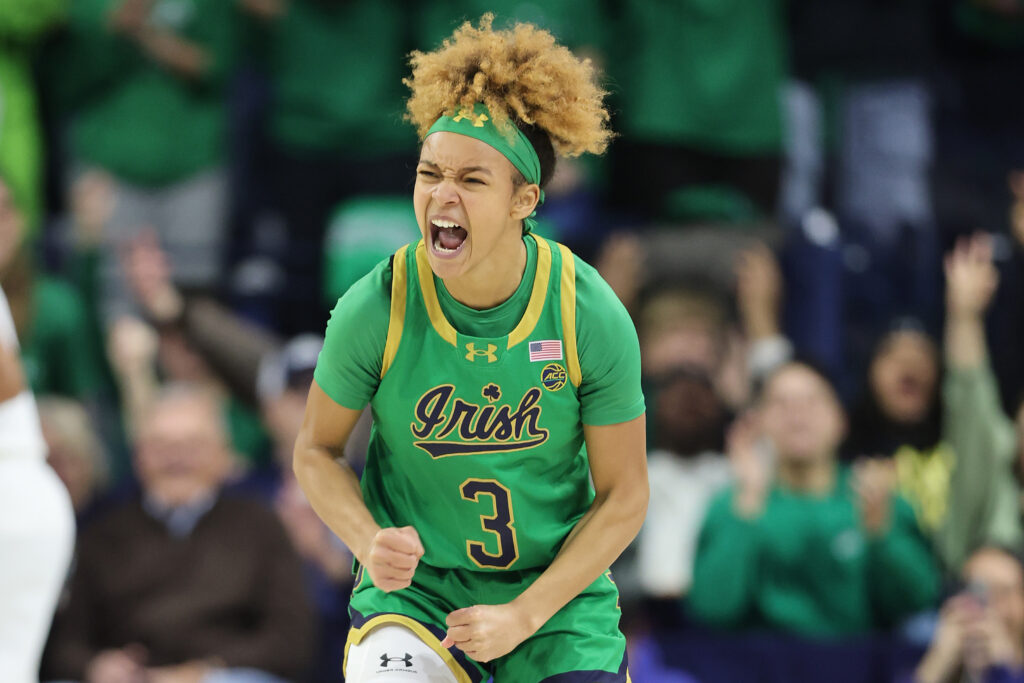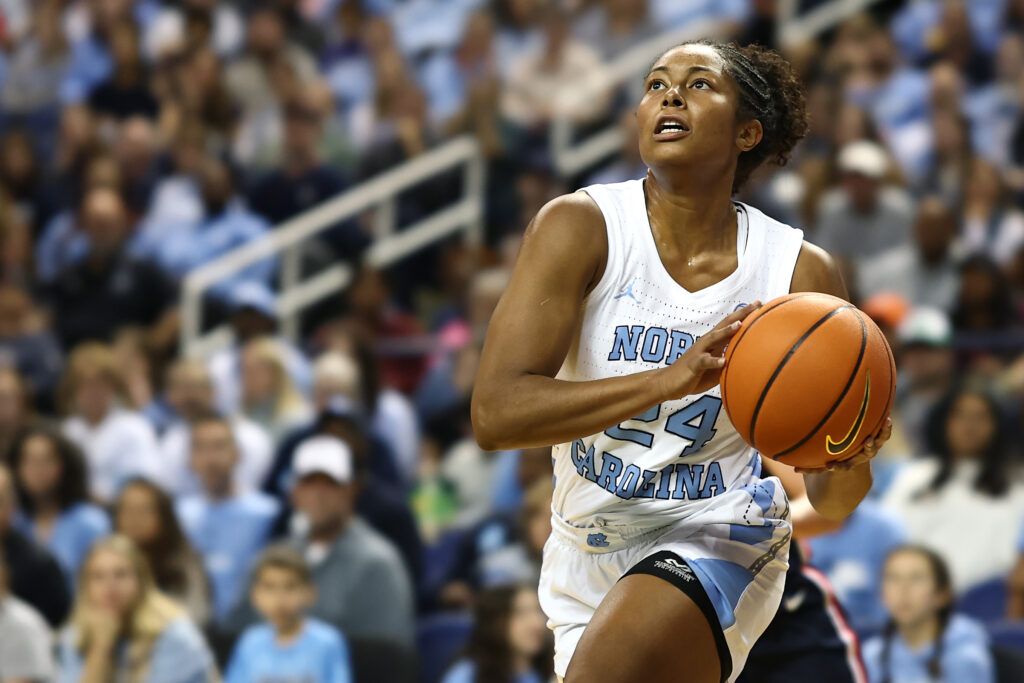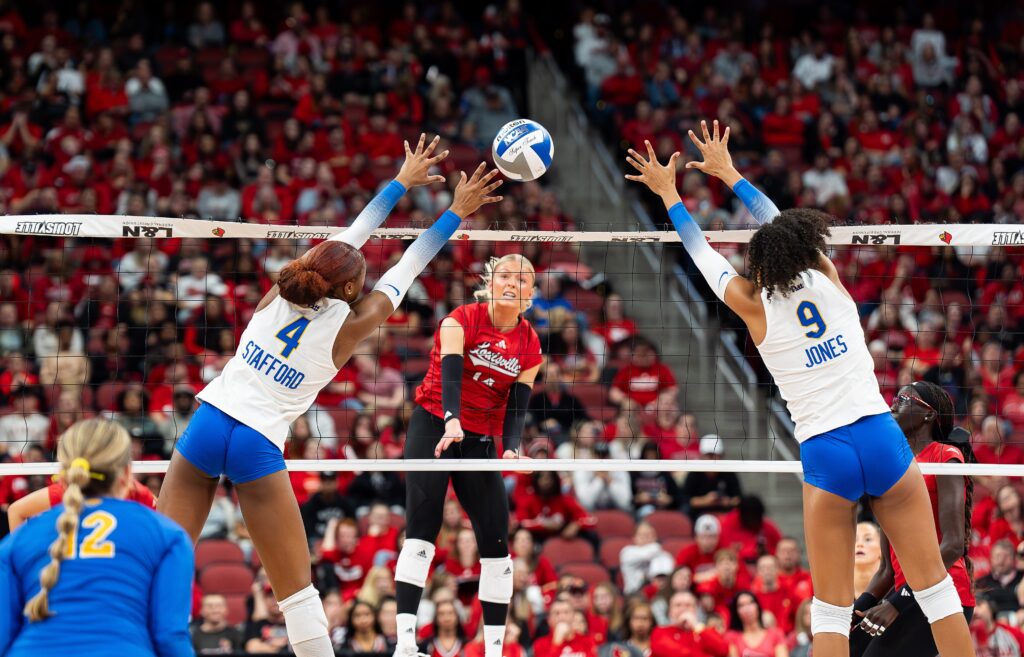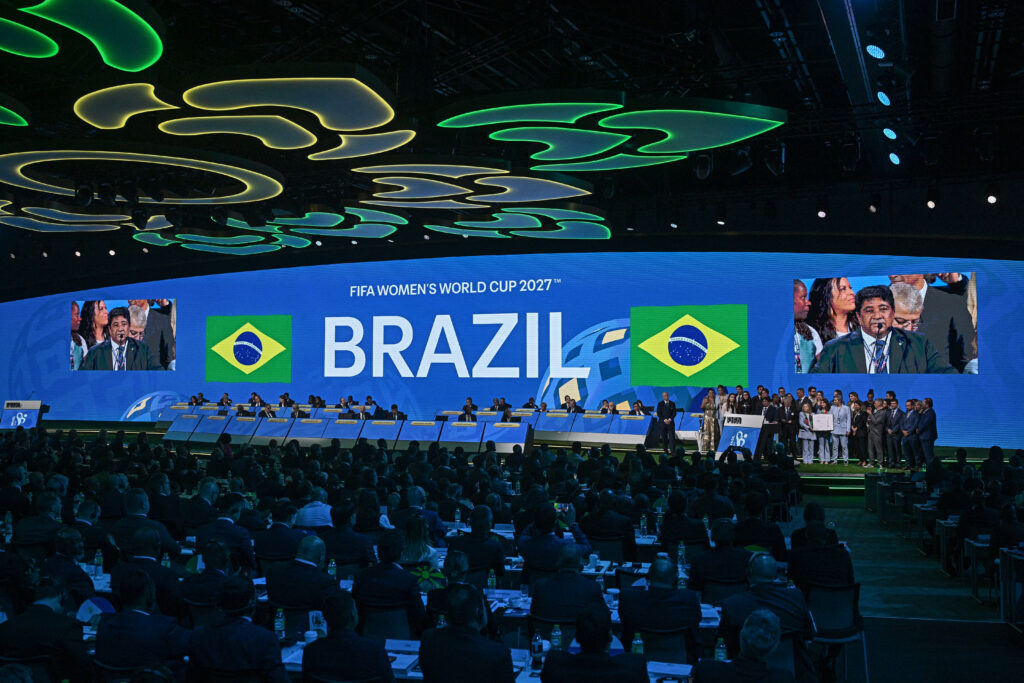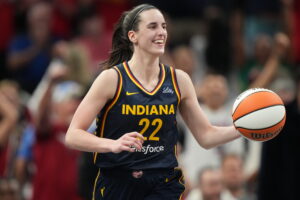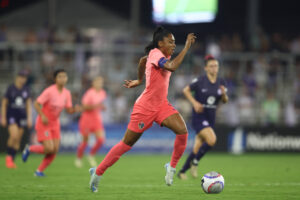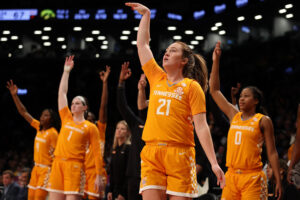When Team Canada captain Hayley Wickenheiser is asked if she will be watching any of the Winter Olympic competitions in Beijing, she is matter of fact in her response.
“I wouldn’t be able to watch most of it,” she says. “They’ll be going live in the middle of the night, and I’ll either be working or sleeping.”
So is retired life for one the greatest hockey players ever to take the ice.
Wickenheiser has an impressive Olympic medal collection — a silver from 1998 and four golds from 2002-14 — not to mention the various other medals and awards from the many international competitions she’s played in throughout her illustrious hockey career. It is unusual for an athlete of her caliber to dismiss the idea of watching the very event she had participated in five times in her life. But then again, most retired athletes are not trying to get through their first year of medical residency.
Since she was young, Wickenheiser envisioned becoming a doctor one day. When she was 10 years old, a friend of hers was struck by a delivery truck and hospitalized. Wickenheiser visited her friend every day that she could, and observing the doctors and nurses who were helping not only her friend but other patients ignited a flame inside of her.
From there began her hockey journey, one that took her on a long and winding road through many countries and championship games at the highest level of her sport. She even found time to play softball some summers, and did well enough to make the 2000 Canadian Olympic team. It appeared as if all of Wickenheiser’s dreams were coming true, but she still hadn’t lost sight of her other passion.
Wickenheiser always knew she needed to have a life after hockey. In 2017, after retiring from her playing career and finishing her degree in kinesiology at the University of Calgary, she enrolled at the university’s Cumming School of Medicine.
Now in residency after graduating last spring, Wickenheiser is a first-year all over again and loving every moment of it.
“I really enjoy going from a veteran in one area to a rookie in another,” Wickenheiser says. “In the midst of a global pandemic, we may not get the same amount of hands-on experience because everything is more virtual now, [but] I think I’ve had incredible mentorship and incredible experience. And with a good perspective on your experience and your mentors that have taught you along the way, you maybe forget about when you’re a veteran [like I was] in hockey. You get back to a growth mindset, and I enjoy being a rookie every day.”
Entering the medical field at the height of the COVID-19 pandemic was enough to fill any retired athlete’s plate. It was also perfectly fulfilling for Wickenheiser, who was doing what she had set out to do as a kid growing up in Saskatchewan, Canada and later Calgary.
That’s when Toronto Maple Leafs general manager Kyle Dubas came calling. Hockey, it seemed, didn’t want medicine to have Wickenheiser all to itself.
“I actually thought I had retired from hockey and I thought I’d never be in hockey again,” she recalls. “I thought I would move onto medicine and I didn’t expect to work in the NHL.”
Dubas offered Wickenheiser a position as the Maple Leafs’ assistant director of player development in 2018. She accepted, and prior to the 2021 season was promoted to senior director of player development. While the NHL role brings her back to the ice, she finds clear parallels between it and the time she spends in examination rooms away from the arena.
“I use every day what I use in medicine: watch a player, see a move they may have done, see where the deficiencies are on and off the ice, as well as the psychology of being an elite athlete. I think I can really relate to a lot of these players,” Wickenheiser says. “It’s our duty, whether it’s junior player, American League hockey player or NHL player, to help them get better on and off the ice.”

As one of few women in an executive role in a male sports league, Wickenheiser knows that eyes are on her, and that doesn’t bother her.
“I feel I’m opening eyes. I see myself as a trailblazer when I played, and I see myself as a trailblazer in my role with the Leafs,” says Wickenheiser, who’s in the most senior hockey operations position ever held by a woman. “I feel that I’m opening doors to legitimate hockey roles.”
Wickenheiser, 43, seems every bit as passionate about her roles as medical practitioner and Leafs player development director as she was as a player. She has to be if she wants to achieve the standards to which she holds herself.
A center on the Canadian national team for 23 years, Wickenheiser finished her hockey career as Canada’s all-time points leader with 168 goals and 211 assists. She won four gold medals — tying her with Jayna Hefford and Caroline Ouellette for the most by a Canadian Olympian — and one silver medal in five Winter Games, to go along with seven world championship titles. In 2019, Wickenheiser was inducted into the Hockey Hall of Fame in her first year on the ballot.
Nowadays, during her turn on rotation at the hospital, she will occasionally reach into her athlete bag as a reminder that the challenging periods will pass. Conversely, when she’s at the arena, she’ll look in her doctor’s bag and help the players diagnose and assess their games as she would a patient’s health. She’s finding that her two worlds collide in many more ways than she would have thought.
Right now, about the only thing missing from Wickenheiser’s life is time. Her retirement, ironically, doesn’t leave her much of it. She managed to squeeze in writing a second book, and recently she helped design a hockey stick for women between her two jobs. Outside of that, she’s spending as many of her waking hours with her family as she can.
With Canada set to face the United States at the Olympics on Tuesday in Beijing (locally on Monday, 11:10 p.m. ET), Wickenheiser hasn’t had time to re-immerse herself into the rivalry she was at the center of for more than two decades. She misses the big stage of the Winter Olympics, but she’s happy to let the next generation of players own the spotlight. She has plenty of other tasks on her mind, after all.
“I work 24/7 in terms of my job with the Leafs and my job in medicine, but I love it. They’re my two loves. All my time is devoted to my family and my two jobs right now. I’m just trying to survive residency,” Wickenheiser says with a laugh. “It is a bit of sacrifice, but what I find more difficult is that my schedule is not my own, so I look forward to T-minus 18 months when I’ll have my schedule back, being done with residency. Then, I’ll have a chance to get my life back.”
Until then, Wickenheiser is perfectly content where she is in her labor of loves.
Ray Bala is a contributing writer at Just Women’s Sports based in Toronto, Canada.
